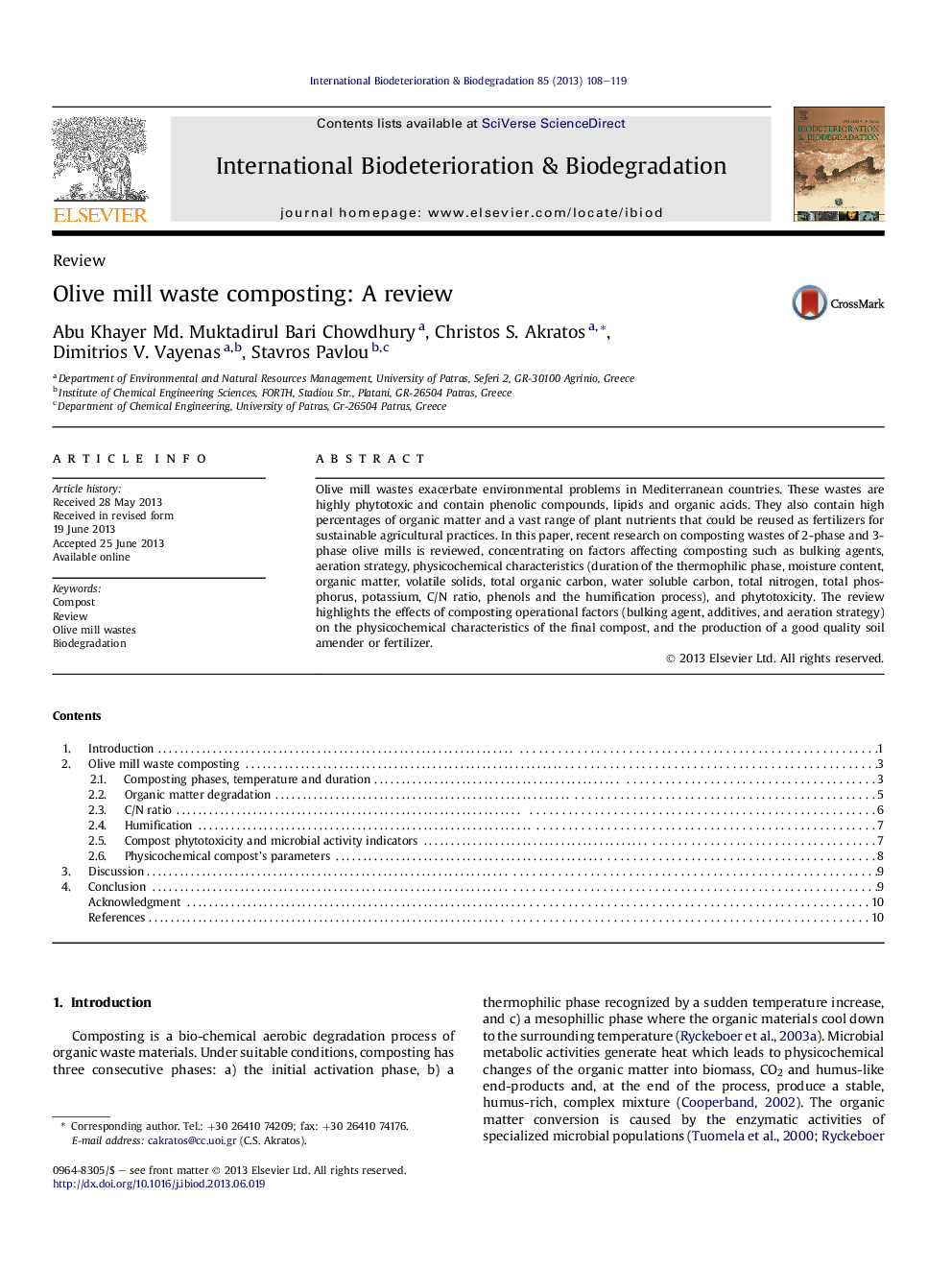| Article ID | Journal | Published Year | Pages | File Type |
|---|---|---|---|---|
| 6289275 | International Biodeterioration & Biodegradation | 2013 | 12 Pages |
Abstract
Olive mill wastes exacerbate environmental problems in Mediterranean countries. These wastes are highly phytotoxic and contain phenolic compounds, lipids and organic acids. They also contain high percentages of organic matter and a vast range of plant nutrients that could be reused as fertilizers for sustainable agricultural practices. In this paper, recent research on composting wastes of 2-phase and 3-phase olive mills is reviewed, concentrating on factors affecting composting such as bulking agents, aeration strategy, physicochemical characteristics (duration of the thermophilic phase, moisture content, organic matter, volatile solids, total organic carbon, water soluble carbon, total nitrogen, total phosphorus, potassium, C/N ratio, phenols and the humification process), and phytotoxicity. The review highlights the effects of composting operational factors (bulking agent, additives, and aeration strategy) on the physicochemical characteristics of the final compost, and the production of a good quality soil amender or fertilizer.
Related Topics
Life Sciences
Environmental Science
Environmental Science (General)
Authors
Abu Khayer Md. Muktadirul Bari Chowdhury, Christos S. Akratos, Dimitrios V. Vayenas, Stavros Pavlou,
